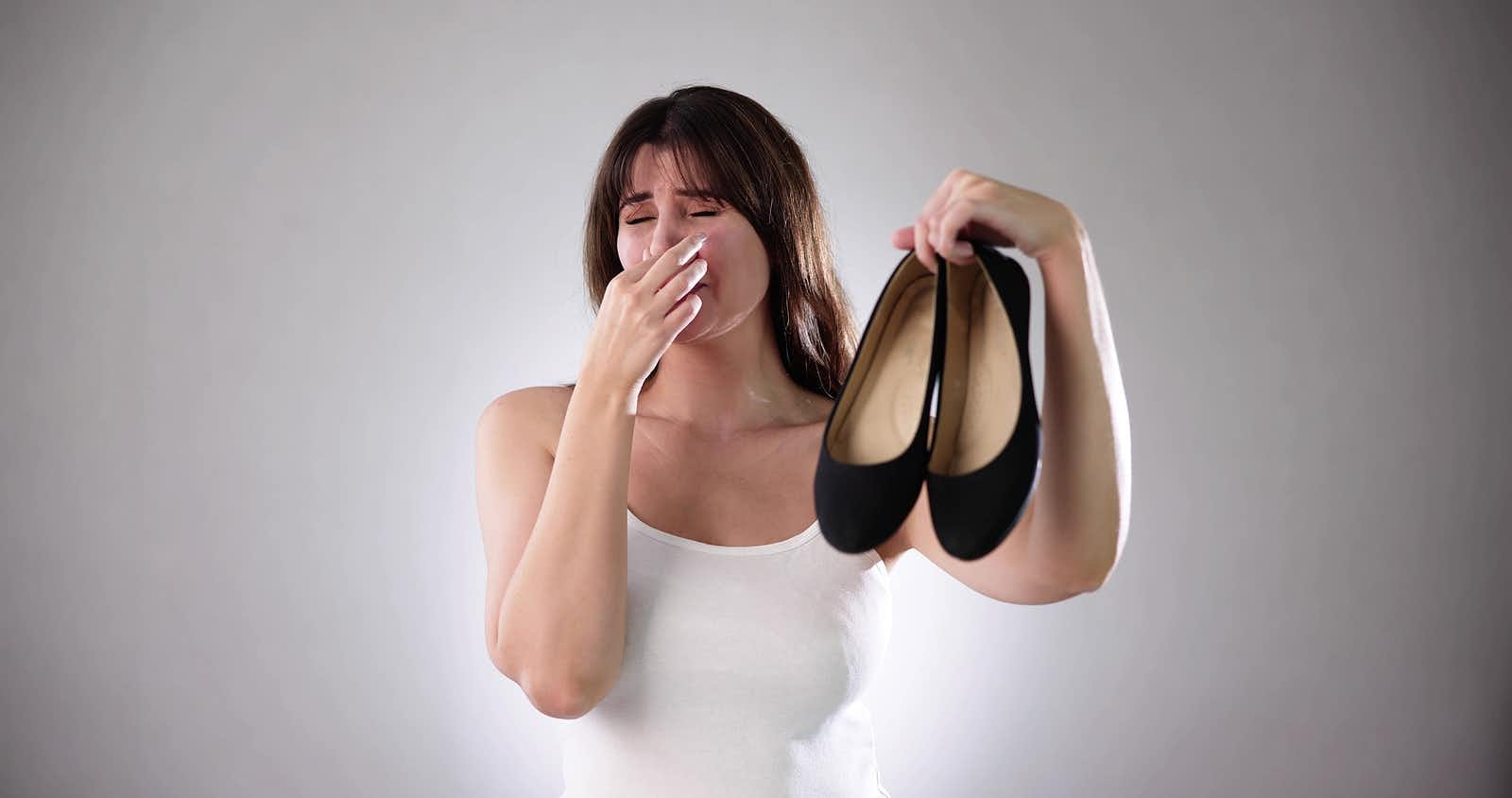
Do your feet smell bad? Many of the remedies for unpleasant foot odor are topical: soak the feet in a solution of baking soda, vinegar, Epsom salts or very strong tea. Any of those approaches may be quite helpful, but here is one that is less obvious: take zinc supplements. Readers share their personal experience below.
How to Combat Foot Odor:
Q. I read that zinc tablets could help control foot odor. My feet used to be really smelly, and I didn’t know what to do about this embarrassing problem.
Once I started taking zinc tablets every day, I no longer had stinky feet or shoes. I thought you would like to know this works.
A. We were surprised to learn that there is a medical term for smelly feet: bromodosis. We have not found any scientific studies of zinc supplements for this condition.
Socks for Stinky Feet:
However, researchers in Thailand recently published a randomized controlled trial of socks coated with zinc oxide nanoparticles (International Journal of Dermatology, online, March 4, 2021). The naval cadets in the study had less foot odor if they wore coated socks.
We don’t know if zinc oxide cream, sold to prevent diaper rash, would prevent foot odor. Since zinc oxide-coated socks may not be easily available, that might be worth a try.
Supplements of this mineral are considered safe, but you should not exceed the tolerable upper limit of 40 mg/day for adults. Getting too much could interfere with copper balance and impair immune function.
Life-Long Smelly Foot Problem:
Q. When I was a child, I had sweaty feet. Taking off my shoes would clear the room. All through high school, I wore closed toe sandals most of the year.
In the 1970s, I worked in downtown Chicago, and commuted by train from a western suburb. Most of the winter, snow or slush on the ground meant I had to wear galoshes to protect my shoes. Train cars were heated with vents at the floor level, so the floor was almost hot. Needless to say, my feet did sweat.
The skin between my toes cracked and hurt. My toe pads were wrinkled and pure white, and of course my feet smelled bad.
I tried a lot of fixes, such as foot powder and a nightly foot bath. Nothing helped. The dermatologist prescribed a foot bath with some kind of purple medication that stained the feet. It was absolutely no help, either.
Was It Time to Take Zinc?
Then I read in Prevention magazine that smelly feet with cracks between the toes and wrinkled white toe pads could be caused by a zinc deficiency.
I started taking zinc tablets. Within the first day, the cracks between my toes closed up and the pads were no longer white or wrinkled. By the third day, the feet were completely cleared up: no sign of wrinkled white toes, the cracks completely healed, and as a bonus, no stinky feet. After about two weeks, I began to notice a metallic taste in my mouth and decided it was time to stop taking the tablets.
That revelation came in the mid 1970s. Since then, whenever my feet begin to smell, I take zinc tablets for a couple of days. I hope you can add this to your wealth of resources of home cures.
A. You are not the first person to tell us that systemic zinc may help control unpleasant odors. A number of European cosmetic products contain compounds with this mineral to aid with odor (Abendrot & Kalinowska-Lis, International Journal of Cosmetic Science, Aug. 2018).
Don’t Take Zinc Too Often:
A reader recently wonders why we caution people not to overdo on zinc:
Q. You had a recent column on stinky feet. At the end, you suggested a possible solution would be to swallow zinc tablets, but you warned us not to take them for more than 30 days. Why? Would you please address the pros and cons of these supplements?
During the COVID pandemic, I read that taking a zinc supplement could ward off the virus. I’ve been taking a zinc supplement daily for more than a year. Is there a danger in continuing to do so?
A. Daily doses of zinc above 40 mg for long periods of time might lead to copper deficiency. That in turn could impair immune function. The “tolerable upper intake levels” of zinc for adults are 40 mg. You might want a zinc holiday periodically in which you skip the supplement for a few weeks.
The NIH Office of Dietary Supplements suggests a daily intake of 9 mg of zinc for women and 11 mg for men. The “tolerable upper intake limit” is 40 mg. Be careful not to exceed the limit, as too much zinc can be dangerous.
Final Words:
Have you or someone you know ever suffered from smelly feet? Did anything work? Did supplements help? Some people take zinc to get over a cold faster. Has that ever worked for you? Please share your experience in the comment section below.
Citations
- Ongsri P et al, "Effectiveness and safety of zinc oxide nanoparticle-coated socks compared to uncoated socks for the prevention of pitted keratolysis: a double-blinded, randomized, controlled trial study." International Journal of Dermatology, online, March 4, 2021. DOI: 10.1111/ijd.15512
- Abendrot & Kalinowska-Lis, "Zinc-containing compounds for personal care applications." International Journal of Cosmetic Science, Aug. 2018. DOI: 10.1111/ics.12463

